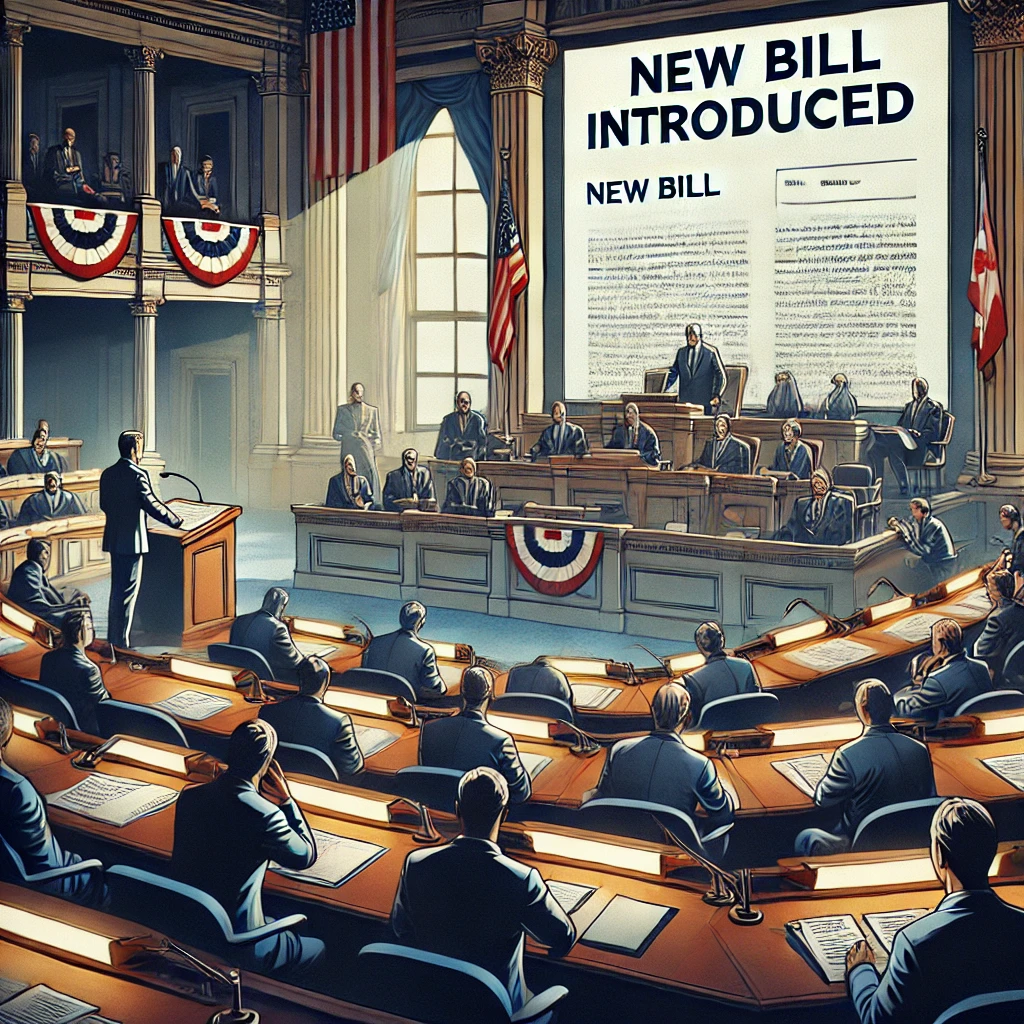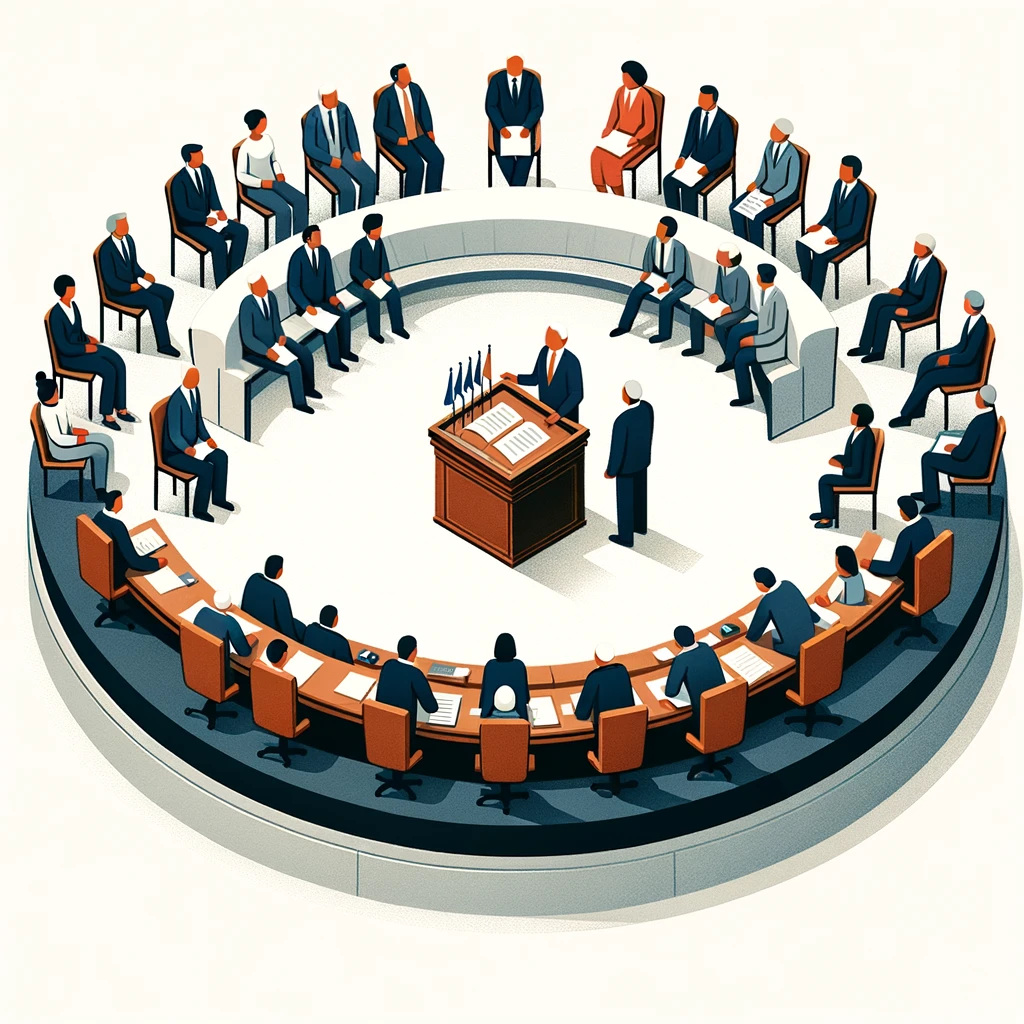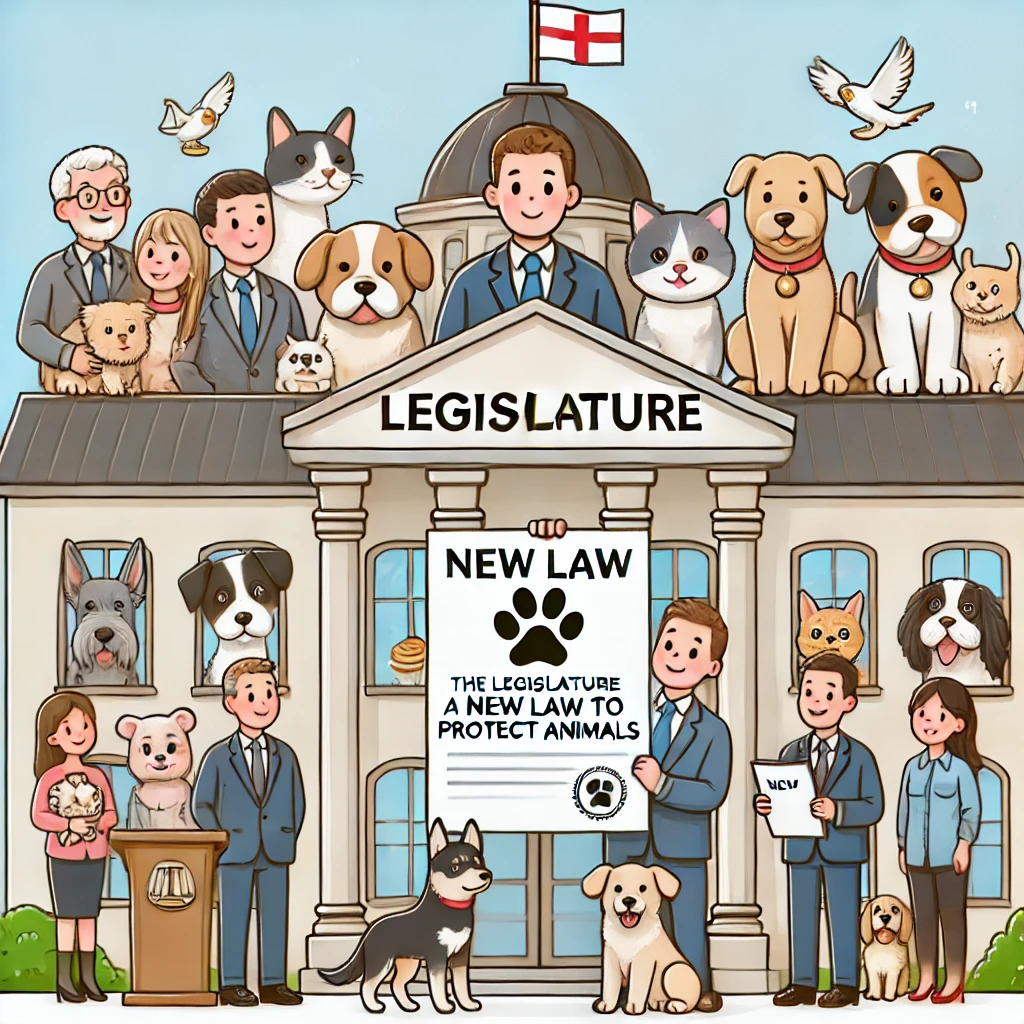Legislature
Definition
A deliberative assembly with the authority to make laws for a political entity such as a country or city.
Parts of Speech
- Noun
Pronunciation
American English
- IPA Pronunciation: /ˈlɛdʒɪˌsleɪtʃər/
- Respelling: LEJ-i-slay-cher (with "LEJ" as in "ledge," "i" as in "sit," "slay" as in "say," and "cher" as in "teacher")
British English
- IPA Pronunciation: /ˈlɛdʒɪslətʃər/
- Respelling: LEJ-i-sla-chuh (with "LEJ" as in "ledge," "i" as in "sit," "sla" as in "slap," and "chuh" as in "sofa")
In both dialects, "legislature" places the primary stress on the first syllable, "LEJ." The pronunciation is similar across both American and British English, with differences in the latter part of the word: "slay-cher" (American) and "sla-chuh" (British).
Etymology
The term "legislature" is derived from the Old French "legislateure" which originated from the Latin "lēgislātūra", from "lēgis", genitive of "lēx" meaning "law" and "lātūra", a suffix meaning "the act of".
Derivatives
- Legislative
- Legislator
- Legislation
- Legislate
- Legislatureship
Synonyms
- Parliament
- Assembly
- Congress
Antonyms
- Executive
- Judiciary
- Electorate
Usage
The legislature plays a vital role in governance, functioning as the main body responsible for creating laws and overseeing the executive branch. It can be bicameral, consisting of two houses, or unicameral, with one house.
Related Terms
- Executive: The branch of government responsible for implementing and enforcing laws.
- Judiciary: The branch of government responsible for interpreting laws and administering justice.
- Bicameral: A legislature with two houses or chambers.
- Unicameral: A legislature with one house or chamber.
Detailed Definition
Noun
- Legislature (Noun): A deliberative body of persons, usually elected, who are empowered to make, change, or repeal the laws of a country or state.
- Example: "The state legislature passed a new education reform bill."
- Legislature (Noun): The body of representatives of a nation or state that makes laws.
- Example: "The federal legislature consists of the House of Representatives and the Senate."
legislature



🇨🇳 Mandarin
- 立法机关 (Lìfǎ jīguān)
- IPA: [lì.fà t͡ɕī.ɡwán]
- Respell: Li-fa ji-guan
🇮🇳 Hindi
- विधायिका (Vidhāyikā)
- IPA: [ʋɪd̪ʱaːjɪkaː]
- Respell: Vi-dha-yi-ka
🇪🇸 Spanish
- Legislatura
- IPA: [leɣislaˈtuɾa]
- Respell: Ley-hees-la-too-ra
🇫🇷 French
- Législature
- IPA: [leʒislatyʁ]
- Respell: Ley-zhee-sla-tur
🇸🇦 Modern Standard Arabic
- الهيئة التشريعية (Al-hay’ah at-tashrī‘īyah)
- IPA: [alhaiʔa at.taʃriˈʕij.ja]
- Respell: Al-hai-a at-tash-ree-i-ya
🇧🇩 Bengali
- বিধানসভা (Bidhānsabhā)
- IPA: [bid̪ʱansɔbʱa]
- Respell: Bi-dhan-sob-ha
🇷🇺 Russian
- Законодательный орган (Zakonodatel'nyy organ)
- IPA: [zəkənədɐˈtɛlʲnɨj ɐrˈɡan]
- Respell: Za-ko-no-da-tel'-ny or-gan
🇵🇹 Portuguese
- Legislatura
- IPA: [leʒislaˈtuɾɐ]
- Respell: Ley-zhee-la-too-ra
🇮🇩 Indonesian
- Legislatif
- IPA: [leɡisˈlatiʋ]
- Respell: Ley-gis-la-teef
🇩🇪 German
- Legislative
- IPA: [leɡislaˈtiːvə]
- Respell: Ley-gis-la-tee-ve
🇯🇵 Japanese
- 立法機関 (Rippō kikan)
- IPA: [ɾippoː kikan]
- Respell: Rip-po ki-kan
🇻🇳 Vietnamese
- Cơ quan lập pháp
- IPA: [kɔ kwan lap̚ faːp̚]
- Respell: Ko kwan lap fap
🇰🇷 Korean
- 입법 기관 (Ibbeop gigwan)
- IPA: [ip.bʌp ɡi.ɡwan]
- Respell: Ib-beop gi-gwan
🇹🇷 Turkish
- Yasama organı
- IPA: [jaˈsama oɾaˈnɯ]
- Respell: Ya-sa-ma or-a-nuh
🇵🇰 Urdu
- قانون ساز اسمبلی (Qānūn sāz assembly)
- IPA: [qaːnuːn saːz əsɛmbli]
- Respell: Qa-noon saz as-sem-bly





